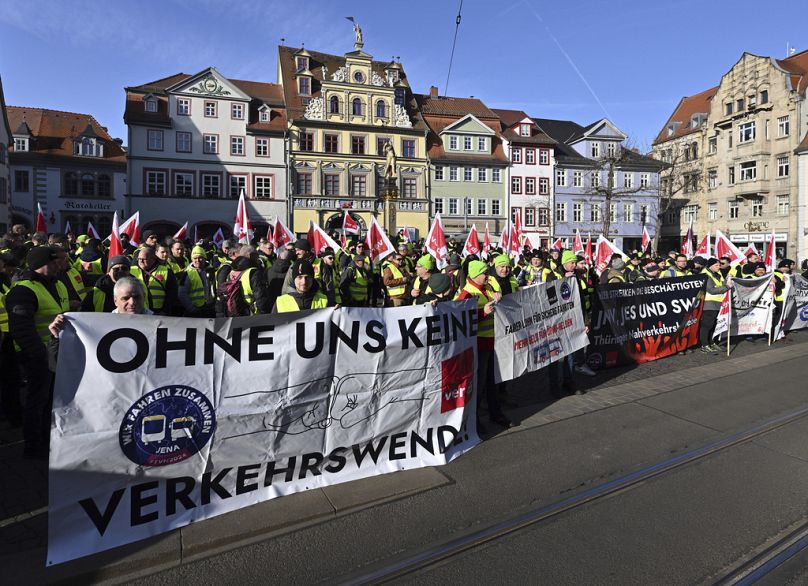As contract talks continue, numerous German cities are bracing for additional warning strikes and demonstrations, with climate activists also participating.
Passengers experienced considerable disruption on Thursday, when buses, trams and metro trains ceased operating across much of Germany as local transport workers began a two-day-strike.
One of Europe’s largest trade unions, Verdi, which represents 90,000 transport workers in Germany, called for the 48-hour 'warning strike' in the ongoing nationwide wage dispute in regional negotiations.
Workers are demanding better working conditions, including shorter working weeks and extra compensation days for shift and night work.
Public transport workers have staged several strikes in recent weeks amid tense collective bargaining talks with nearly all public transit agencies in the country.
Facing inflation and staff shortages, unions are pushing for higher wages and better working conditions.
Such short 'warning strikes' are a common tactic in German contract negotiations. But they have frustrated travellers and commuters:
"I think it's unfair to the people who travel on local transport that they are constantly arguing and striking," said Ariaan Khalecci, who works in an architecture office in Cologne.
But some passengers are sympathetic: "You have to see both sides, of course. And one can understand that the people who work for KVB (public transport in Cologne) want to be paid accordingly and therefore act accordingly," said Maren Stemmler, a student from Cologne.
With ongoing contract negotiations, more warning strikes and rallies are planned in many German cities together with Fridays for Future.
Verdi formed an unlikely alliance with the climate activists under the slogan #WirFahrenZusammen (We’re Driving Together) in recognition of their overlapping goals; more action on the climate crisis requires greater investment in public transport.
Public transport workers across Germany have joined the climate activists for a week of strike action culminating in a collective nationwide walkout and climate protest on Friday.












